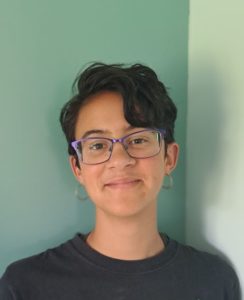by Zara Zrudlo

Micro-aggressions, as defined by Miriam Webster, are “a comment or action that subtly and often unconsciously or unintentionally expresses a prejudiced attitude toward a member of a marginalized group (such as a racial minority).”
For instance, the assumptions that we make about a person’s gender or pronouns when we talk to them briefly at the store don’t seem like a super big deal but can be really hurtful. As a non-binary person who uses the they/them pronouns, I get misgendered A LOT and it can be really hurtful even when it’s an accident. Another example could be seeing a woman, or a person with female gender expression, and assuming that they can’t carry something heavy, or aren’t as strong as a man, or a person who was assigned male at birth. These things may not seem like a big deal to the person who is committing them, or they may be totally unaware that they are doing it, but things like that can really build up, especially for people in minority communities who face things like that multiple times a day, every day. It can be hard to break a habit we are unaware of, and researching offensive terms, or learning more about marginalized communities can help with that. If we know more about the groups of people that micro-aggressions are often directed towards, we will be so much more likely to catch ourselves if we say something offensive. Or if someone tells you that something you are saying is hurtful, thank them and do some more research on the subject to be more prepared next time!
I saw an example online about the stereotype of the Angry Black Woman. In the media, Black women are often portrayed as angry, or more violent than other women, which can lead to even more distrust and fear of Black people. In this example it compared micro-aggressions to mosquito bites. People in minority communities, especially visible minorities, receive multiple mosquito bites every day, but people who are more privileged, only receive one a week, then it will build up a lot more for people from marginalized communities. Imagine you were so much itchier than everyone else, you had way more mosquito bites, then the more you had, the bigger each one would feel. You would have so many more reasons to be angry. I’ve lost count of the amount of times I’ve cried, or had to clench my fists behind my back when someone has mis-gendered me for the fifth time that day, because the more it happens, the worse and worse it feels.
Now imagine having to deal with that from a really young age, especially when you’re a kid and you don’t really understand why people are making fun of you for your ethnicity, or religion. Ways you can can help are by being more aware, asking what people’s pronouns are when you first meet them and sharing your own, not assuming that a person of colour is on drugs, not assuming that a woman can’t change her own tires, not assuming that just because someone is LGBTQ2SIA+ that they are a pedophile, etc. These are just small things that you can do in order to help people feel more accepted and welcomed.
Zara Zrudlo is a homeschooled, fourteen year old resident of Kemtpville. They love writing, art, acting, reading and anything to do with music. Ever since they were little they’ve cared a lot about activism and social justice, and hoped to make a difference in the world. Zara has written two and a half novels, and ran a newspaper for their friends and family for three years. They love hanging out with their dogs and chickens and spending time imagining having dinner with various book characters.

